Table des matières
In the world of global finance, few names hold as much weight as BlackRock. This article dives into the journey of BlackRock, tracing its beginnings, rapid growth, and how it’s become entwined with political power. We’ll also explore its unexpected involvement in Ukraine’s recovery efforts during ongoing geopolitical tensions. Additionally, we’ll draw parallels between BlackRock and historical entities like the East India Company, raising questions about its influence today. Join us as we explore BlackRock’s story and its potential impact on the world economy.
BlackRock : de sa création à sa domination mondiale
BlackRock’s beginnings were rooted in another financial powerhouse, Blackstone. In 1988, Larry Fink established Roche noire in partnership with seven colleagues as an internal division dedicated to asset management under the umbrella of Blackstone. Remarkably, the venture swiftly achieved profitability within a short span of time. By 1989, the collective assets managed by the group had surged fourfold, reaching an impressive valuation of 2.7 billion dollars. This extraordinary rise can be attributed to the pivotal role played by two groundbreaking advancements – Exchange Traded Funds (ETFs) and Aladin, the proprietary trading algorithm meticulously developed by BlackRock. ETFs allow investors a simple and efficient way to diversify their investments while reducing risk and costs. Aladdin serves as BlackRock’s risk management system, functioning as a digital brain to track portfolios and manage risk by predicting the likelihood of a specific investment failing.

BlackRock’s big break came in 1995 when it was acquired by PNC Financial Services Group, a bank based in Pittsburgh. PNC saw BlackRock’s expertise in fixed-income securities as a valuable asset and wanted to expand its asset management business. With PNC’s backing, BlackRock expanded rapidly, acquiring other asset management firms and entering new markets. In 1999, BlackRock made a major move by acquiring State Street Research and Management, a Boston-based asset manager with a strong presence in the mutual fund market. This acquisition gave BlackRock access to State Street’s distribution network, helping it grow its assets under management.
Tout au long des années 2000, BlackRock a poursuivi son expansion, acquérant d’autres gestionnaires d’actifs et lançant de nouveaux produits d’investissement. En 2006, la société a lancé sa plateforme de FNB iShares, qui est rapidement devenue un chef de file sur le marché des FNB, consolidant la position de BlackRock comme l’un des plus grands gestionnaires d’actifs au monde.
En 2009, BlackRock a réalisé sa plus grande acquisition en achetant Barclays Global Investors pour 13,5 milliards de dollars. Cette acquisition a fait de BlackRock le plus important gestionnaire d’actifs au monde, avec plus de 2,7 billions de dollars d’actifs sous gestion. Cela a également donné à la société le contrôle d’iShares, qui est devenu le plus grand fournisseur d’ETF au monde.
Plus important encore, l’influence de BlackRock s’est accrue grâce à d’importantes opportunités en période de crise financière, comme lors de la crise financière de 2008, lorsque la société a repris les actifs de grandes institutions bancaires effondrées comme Bear Stearns et AIG. En 2020, BlackRock a de nouveau été sollicité pour aider à stabiliser le marché obligataire dans le contexte des turbulences économiques causées par la pandémie de coronavirus.
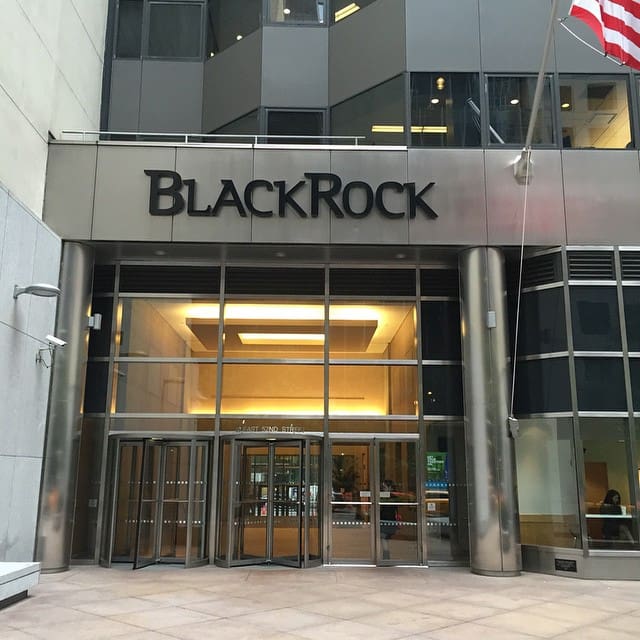
BlackRock presently stands as the largest among the trio of investment firms, overseeing an impressive sum of nearly $10 trillion in assets. Vanguard follows with approximately $8 trillion, trailed by State Street at $4 trillion. These substantial assets, attributed to investors who are BlackRock’s clients, essentially translate to BlackRock’s management or ownership of the entire portfolio. In fact, this number surpasses the entire Gross Domestic Product of most of the countries in the world.
Fonctionnant comme une pieuvre géante, BlackRock étend son influence à divers secteurs, notamment le pétrole et le gaz, la technologie et les soins de santé. En tant qu’actionnaire important de certaines des plus grandes entreprises du monde, BlackRock exerce une influence considérable sur leurs choix stratégiques. BlackRock est omniprésente dans pratiquement tous les aspects de notre vie, du carburant qui alimente nos véhicules aux gadgets que nous utilisons et aux institutions financières auxquelles nous confions nos ressources.

Cette concentration de la propriété a suscité des inquiétudes quant aux comportements monopolistiques.
La propriété d’actions dans des entreprises supposées concurrentes par les mêmes quelques sociétés d’investissement, comme BlackRock, crée une forme différente de monopole, nuisant à la concurrence, aux consommateurs et à l’économie. Ce modèle de concentration de la propriété institutionnelle est observé dans les principaux secteurs, ce qui a un impact sur la vie quotidienne et même sur les décisions des grandes entreprises.
BlackRock: FAQ
Who is the current BlackRock CEO?
Larry Fink est l’individu derrière BlackRock. Il est le fondateur, le président et le chef de la direction de la société.
Who are the 7 founders of BlackRock?
Les 7 fondateurs de BlackRock sont Larry Fink, Keith Anderson, Ben Golub, Ralph Schlosstein, Barbara Novick, Hugh Frater, Susan Wagner et Robert S. Kapito.
What companies are owned by BlackRock?
BlackRock détient (avec droit de vote) un nombre important d’actions dans certaines des sociétés les plus connues au monde, notamment Apple, Microsoft, Amazon, Nvidia, Google, Tesla, UnitedHealth Group, Meta et Berkshire Hathaway.
What does BlackRock deal with?
BlackRock is mainly engaged in asset management, overseeing a vast portfolio of investments across different sectors, including media, technology, healthcare, energy, communications, and finance.
Does BlackRock own companies in Russia?
BlackRock owns shares in several companies in Russia, including Gazprom, Rosneft, Sberbank, VTB, Transneft, Alrosa, Lukoil, Tatneft, Novatek, and Nornickel. However, due to Russia’s ongoing conflict with Ukraine, BlackRock has incurred a substantial loss of $17 billion on its funds exposed to Russian equities. As of January 2021, BlackRock held more than $18.2 billion in Russian assets. Currently, many of its funds are frozen due to market conditions and sanctions imposed by Russia on US companies and also the US and its allies on Russian companies.
L’impact de BlackRock sur la politique et les relations gouvernementales
BlackRock’s rise to power was carefully and methodically orchestrated over time, intertwining its influence with political power and giving it the ability to choose winners and losers. This control and concentration of institutional ownership raise concerns about its impact on the quality of life for ordinary people. In fact, their strategic playbook involves campaign contributions, building connections with both major political parties, and specifically targeting the House Financial Services Committee, which could potentially influence BlackRock’s interests. Additionally, the company employs a substantial number of professional lobbyists to advocate for its positions in government. These efforts further solidify BlackRock’s influence and presence in high-ranking government positions, with former employees now holding key roles in the Biden administration, raising questions about potential conflicts of interest and financial institutions’ control over decision-making processes.

At the time of this writing, BlackRock’s influence has extended high up into the US government, with three of its former employees holding appointed positions in the Biden administration. Brian Deese, the former Global Head of Sustainable Investing at BlackRock, is now Biden’s Chief Economic Director. Mike Pyle, BlackRock’s former Global Chief Investment Strategist, serves as Kamala Harris’s Chief Economic Advisor. Both of these positions do not require Senate confirmation. Furthermore, Wally Adeyemo, formerly the Chief of Staff to BlackRock CEO Larry Fink, currently serves as the Deputy Treasury Secretary.
Moreover, Larry Fink, the Chairman and CEO of BlackRock, is a member of the Board of Trustees of the World Economic Forum. This deep integration into political and economic circles has raised concerns about the extent of the firm’s influence.
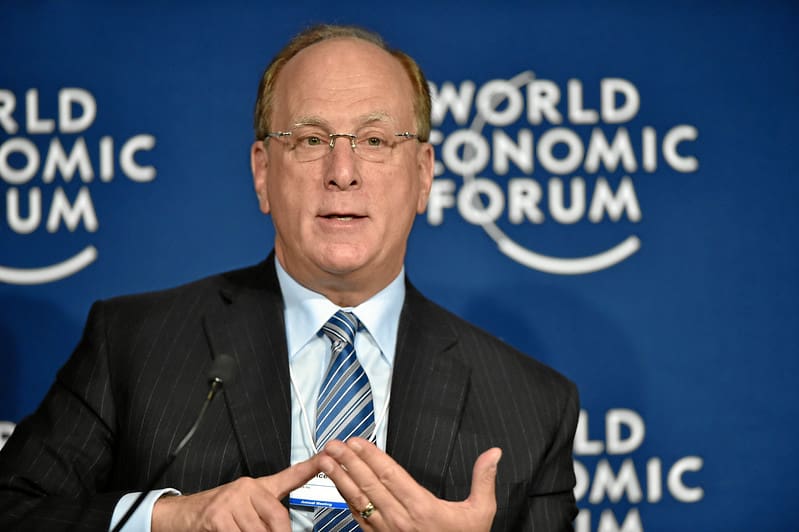
La présence d’anciens combattants de BlackRock à des postes gouvernementaux de haut rang a attiré l’attention, certains s’interrogeant sur les conflits d’intérêts potentiels et le niveau de contrôle que les institutions financières comme BlackRock ont sur les processus décisionnels gouvernementaux. Ce niveau d’influence a suscité des discussions sur le rôle et l’impact des institutions financières, des fonds spéculatifs et des banques dans l’élaboration des politiques et des réglementations économiques.
Le rôle de BlackRock en Ukraine
Amidst the challenges faced by Ukraine due to the ongoing conflict with Russia, Ukrainian President Volodymyr Zelensky has enlisted the help of BlackRock to attract private and public investments for the reconstruction of Ukraine’s economy, which has been affected by the war. The Ukraine Development Fund, with the assistance of these firms, aims to mobilize capital from various investors. On the surface, this might seem like a positive step—after all, who better to rebuild an economy than some of the biggest names in global finance? But as we peel back the layers, we start to see a more complex picture.
Some financial investors view this as a profitable opportunity, seeing potential in Ukraine’s post-war future. However, the release of a video by O’Keefe Media Group unveiled recently shed light on the work dynamics of BlackRock. The content of this video, featuring a conversation between BlackRock recruiter Serge Varlay and an undercover journalist from OMG News, provides an unexpected connection to the situation in Ukraine.

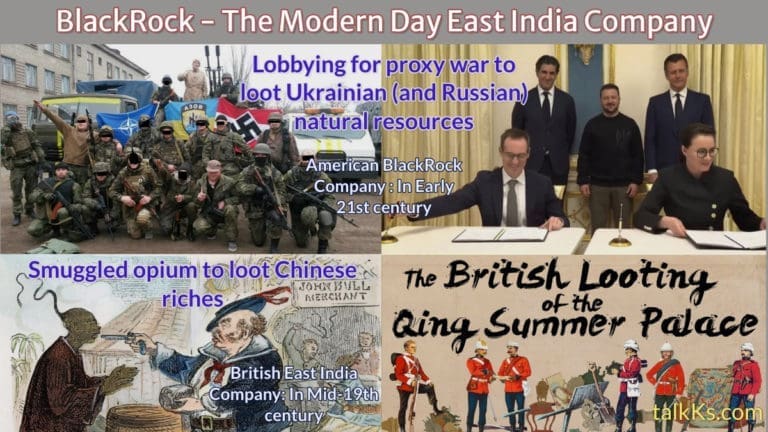

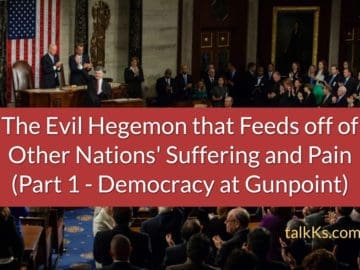
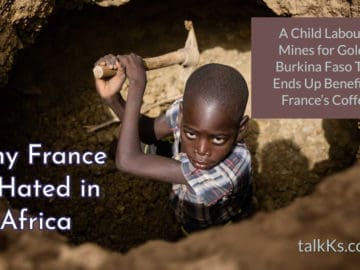
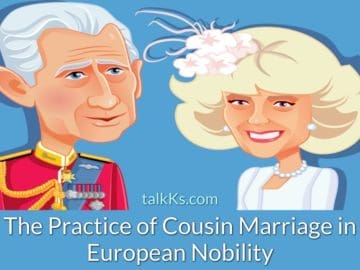
Commentaires0